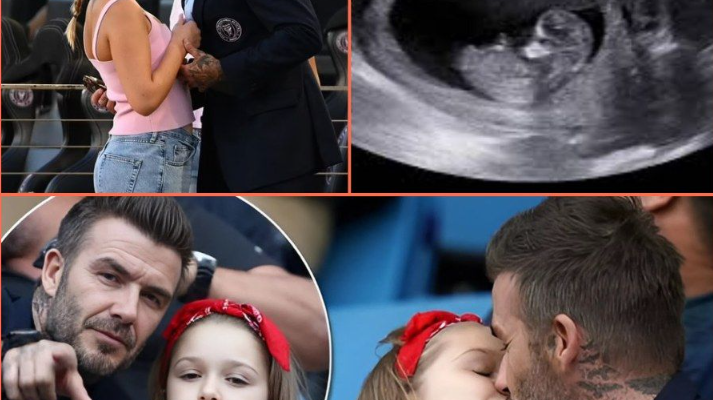When Fame Turns Toxic: The Dark Side of Celebrity Rumors
In the glittering world of celebrity culture, fame often shines like a dazzling light—but that same light can also burn. Behind the red-carpet smiles, social media perfection, and curated interviews lies a darker, more invasive reality: the constant hum of gossip, speculation, and fabricated headlines. What begins as curiosity about a public figure’s life can easily turn into obsession, with rumors spreading faster than truth ever can. This toxic cycle has become one of the most damaging aspects of modern fame, leaving celebrities and their families vulnerable to lies that can ruin reputations, careers, and even mental health.
The Machine That Never Sleeps
The gossip industry is a multibillion-dollar empire. Tabloids, YouTube channels, and social media accounts thrive on sensational headlines because they drive clicks and shares. A shocking story—even if it’s false—can reach millions within hours. Whether it’s a supposed affair, a fake pregnancy, or a fabricated feud, the formula is simple: the more outrageous, the more attention it gets.
What makes it worse is how easy it is for misinformation to appear credible. A cleverly edited photo, an anonymous “insider tip,” or a vague social media post can trigger a wave of speculation that spirals out of control. And once the story is out there, retractions rarely travel as far as the lie. In the court of public opinion, perception becomes reality.
The Psychological Toll on Celebrities
Celebrities often seem invincible, surrounded by wealth, luxury, and adoring fans. But emotionally, many live under crushing pressure. Every word, outfit, or friendship is dissected online, leaving no room for mistakes or privacy. When false stories surface—especially about sensitive topics like relationships, health, or family—it can feel like a personal attack.
Studies have shown that public figures experience high rates of anxiety, depression, and burnout caused by constant media scrutiny. The digital age has intensified that stress: rumors now spread 24/7, and anyone with a phone can join the conversation. Even when celebrities try to ignore the noise, it seeps into their professional lives. Directors hesitate to cast someone “controversial.” Brands back away from endorsements. Friendships and marriages strain under public speculation.
The human cost is often invisible. Behind the glamorous Instagram feeds are people fighting to protect their dignity, children growing up surrounded by lies, and families forced to prove their innocence in front of millions.
When Families Become Targets
It’s not just the celebrities who suffer—often, their families are dragged into the spotlight without consent. The children of famous figures are particularly vulnerable. Born into public attention, they face scrutiny for things ordinary kids would never be judged for. Every outfit, friendship, or social media post becomes potential fodder for tabloids.
What’s even more disturbing is when gossip crosses ethical boundaries, inventing scandalous or harmful stories about minors. Such rumors not only invade privacy but can also inflict lasting psychological trauma. For families trying to raise their children away from the chaos, fame can feel like a double-edged sword: offering opportunity on one hand and exposure to cruelty on the other.
Parents in the public eye often express frustration about how the media manipulates innocent family moments. A simple photo—a hug, a smile, a kiss on the cheek—can be twisted into something scandalous. The truth is rarely enough to undo the damage once the narrative takes hold.
Why We Believe What We Read
There’s a psychological reason why celebrity rumors spread so fast. Humans are wired to crave stories, especially those filled with drama, emotion, or moral conflict. Gossip gives people a sense of connection and participation—it makes them feel “in the know.” Social media amplifies that by rewarding engagement: likes, comments, and shares turn rumors into viral sensations.
But beneath that thrill lies something darker: projection. People often use celebrities as mirrors for their own insecurities and fantasies. When a famous person stumbles, it reassures us that even the powerful are flawed. When they’re glorified, we live vicariously through their perfection. The problem is that these emotional investments blur the line between admiration and invasion.
The Media’s Responsibility
Responsible journalism means verifying facts before publishing, respecting privacy, and distinguishing between public interest and prurient curiosity. Unfortunately, not all media outlets follow these principles. In the race for clicks, many sacrifice ethics for speed.
Still, there are encouraging signs of change. Some journalists and influencers now push back against gossip culture, promoting empathy and accountability. Public figures have begun to take legal action against defamation, forcing tabloids to retract false claims. Social media platforms are also experimenting with tools to flag misinformation—though these efforts remain imperfect.
How Celebrities Fight Back
Famous individuals are increasingly reclaiming their narratives. Platforms like Instagram and TikTok allow them to speak directly to fans, bypassing traditional media. By sharing authentic glimpses of their lives—on their own terms—they challenge distorted portrayals.
Some stars use humor, others use transparency, and some maintain total silence, knowing that engagement only fuels the fire. The most powerful response, however, often lies in resilience: continuing to live with integrity despite the noise. Over time, consistency and authenticity can drown out the rumors.
What We Can Do
The public plays a crucial role too. Every click, comment, or share contributes to the online ecosystem. Choosing not to engage with gossip—even by refusing to spread a “shocking” headline—reduces its reach. Supporting ethical journalism, fact-checking sources, and remembering that celebrities are human beings can collectively shift the culture.
We can still admire talent, follow entertainment, and enjoy celebrity news—without dehumanizing those behind it. Curiosity doesn’t have to mean cruelty.
The True Price of Fame
Fame will always attract attention. It’s part of what makes the entertainment world fascinating. But when fascination turns to fixation, admiration to exploitation, the system becomes toxic.
Behind every rumor lies a real person, often struggling to navigate the weight of a spotlight that never turns off. Until we, as a society, learn to separate truth from spectacle and empathy from entertainment, fame will remain a dangerous game—one where the brightest lights cast the darkest shadows


